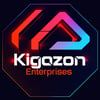Databases
SQL databases are more rigid, meaning they enforce rules on how data can be stored and accessed. This makes them more reliable, but also more difficult to work with. NoSQL databases are more flexible, meaning they don't have as many rules. This makes them easier to work with, but also less reliable.
Both SQL and NoSQL databases have their own strengths and weaknesses. It's important to choose the right type of database for your needs. If you need a database that is easy to use and doesn't require a lot of rules, then a NoSQL database is a good choice. If you need a database that is reliable and enforces rules, then an SQL database is a good choice.
SQL
There are many different types of SQL databases, some of the most popular ones are MySQL, Microsoft SQL Server, and Oracle. Each database has its own strengths and weaknesses. MySQL is the most popular open source database, but it is not as fast as Microsoft SQL Server. Microsoft SQL Server is a closed source database, but it is very fast. Oracle is a very powerful database, but it can be difficult to use.
When choosing a database, it is important to consider your needs. If you need a powerful database that can handle complex queries, then SQL is the way to go. If you need an easy to use database that can be easily scaled, then NoSQL is the way to go. Lets take a look about some of the key advantages and disadvantages of SQL databases.
Advantages:
Fast execution of queries
SQL databases are renowned for their fast execution of queries. This is because the data is stored in a structured format that is easy for the database to access and manipulate. This makes SQL databases the ideal choice for applications that require fast retrieval of data.
Efficient data storage
SQL databases are very efficient when it comes to storing data. They are able to store data in a very compressed format, which results in a smaller database size. This means that less disk space is required to store the database, and less bandwidth is required to transfer the database. Additionally, SQL databases are able to store data in a columnar format, which further reduces the size of the database.
Easy to use
SQL databases are easy to use because they are designed to be easy to query and manipulate. This makes them ideal for applications that need to store and retrieve data quickly and efficiently. Additionally, SQL databases are typically easy to install and configure, which further reduces the learning curve for users.
Disadvantages:
Limited scalability
One of the key disadvantages of SQL databases is their limited scalability. This can be a major problem for businesses that experience rapid growth or sudden increases in data volume, as the database may not be able to cope with the increased demand. This can lead to performance issues and downtime, which can be extremely costly. Additionally, the limited scalability of SQL databases can also make it difficult to support new applications or services, as the database may not be able to handle the increased workload.
High maintenance costs
SQL databases can be quite high maintenance, especially if they are not properly cared for. This can include things like ensuring that the data is properly normalized, making sure that there are no orphaned records, and making sure that the indexes are up to date. If these things are not done regularly, the database can become quite slow and inefficient, which can lead to frustration for users and higher costs for the company.
NoSQL
However, NoSQL databases are not a panacea, and there are some tradeoffs to consider before deciding to use one. For example, NoSQL databases typically have weaker consistency guarantees than SQL databases, and may be less suitable for applications that require transactions or complex queries.
If you're considering using a NoSQL database for your next project, it's important to understand the pros and cons. Lets take a look about some of the key advantages and disadvantages of NoSQL databases.
Advantages:
Scalability
NoSQL databases are designed to be scalable, meaning they can handle large amounts of data without performance degradation. This is achieved in part by using a distributed architecture, where data is spread across multiple servers. NoSQL databases can also be scaled horizontally, by adding more servers as needed. This is in contrast to SQL databases, which are typically scaled vertically by adding more powerful hardware (e.g. a faster CPU or more memory).
Flexibility
NoSQL databases are also more flexible than SQL databases, due to their schemaless design. This means that data can be stored in any format, without having to conform to a predefined schema. This makes it easier to store and process data that is constantly changing or doesn't fit well into a traditional relational database structure.
Performance
NoSQL databases can offer better performance than SQL databases for certain types of applications. This is because they are designed to be highly efficient at storing and retrieving data. For example, many NoSQL databases use an in memory architecture, which can provide sub millisecond response times for real time applications.
Disadvantages:
Complex queries
NoSQL databases are not as well suited for complex queries as SQL databases. This is because NoSQL databases do not support the same level of query optimization as SQL databases. In addition, NoSQL databases do not support the same level of data integrity as SQL databases. This means that data in a NoSQL database can be corrupted more easily than data in a SQL database.
Reliability
NoSQL databases are not as reliable as SQL databases. This is because NoSQL databases do not use the same ACID (atomicity, consistency, isolation, durability) transaction model that SQL databases do. This means that NoSQL databases are more likely to experience data corruption and data loss.
The debate between SQL and NoSQL is one that has been around for quite some time, with no clear winner in sight. However, we can all agree that both have their pros and cons. If you're looking for speed and flexibility, NoSQL is the way to go. But if you need reliability and data integrity, SQL is the better choice.
Star our Github repo and join the discussion in our Discord channel to help us make the BLST website the best it can be!
Test your API for free now at BLST!






Latest comments (0)